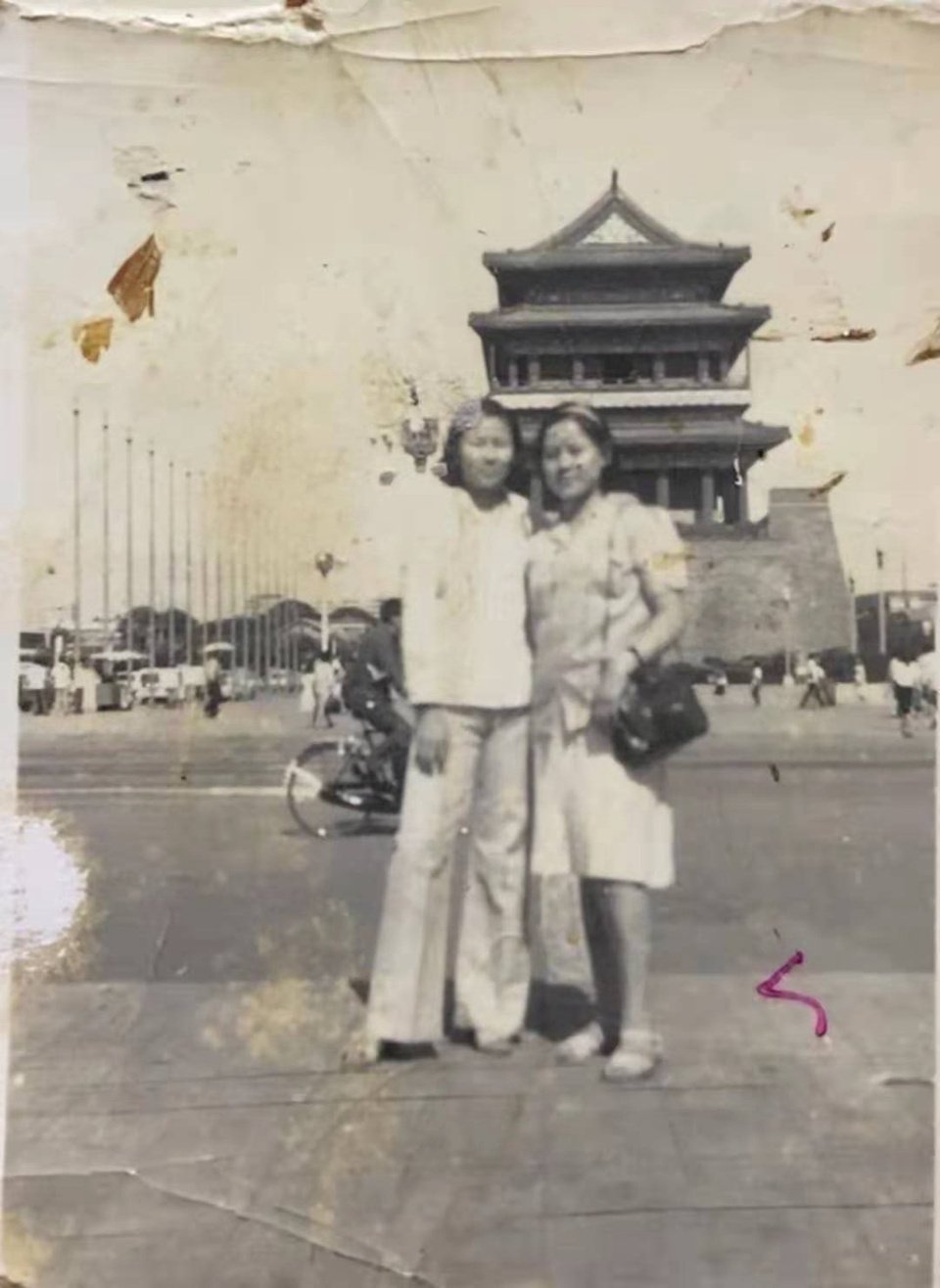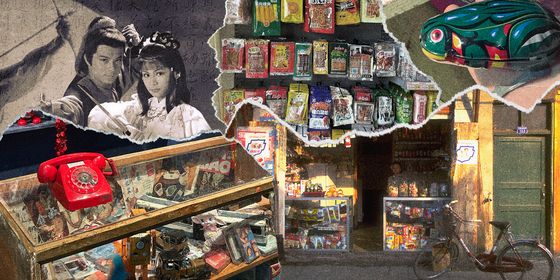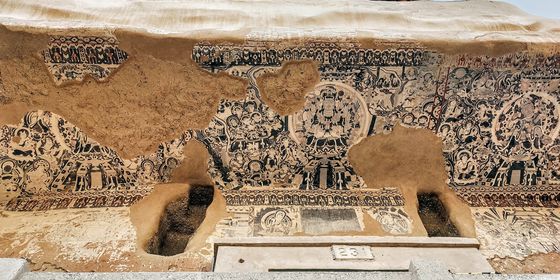One woman's life from working the fields of Anhui to cleaning the streets of Beijing
Xu Pingru, 57 years old, street cleaner from Anhui province
I came across an old black and white photograph the other day while I was cleaning the house. In the photo I was holding a baby, smiling at the camera with my hair in pigtails. I looked so young.
That photo was taken decades ago, when I was still a teenager.
I was 17 when I first came to Beijing in the 1980s. Back then, I worked as a babysitter for 15 kuai a month, plus room and board.
When I was a child, I only attended one year of primary school before dropping out, so I could barely read. The kid I babysat read picture books, so I learnt to read at the same time. After a while my vocabulary expanded a lot, until I could recognize a decent number of characters.
I was a good student at school. I even received the “Three-good Student” award [editors note: given to students who show good moral character, study, and physical attributes] for my excellent performance at the end of my first year of primary school. After I dropped out, my teacher visited my parents to try to convince them to send me back to school. But it wasn’t practical. My family couldn't afford the school fee, which cost 1 kuai 2 mao.
I’m the eldest of four siblings—it was just too many mouths to feed. So I joined the village commune to earn work points and support my family—family always came first back then, people didn’t get to decide things for themselves. I helped raise cattle from age 11 to 17.
There was no telephone during my first few years in Beijing, so I wrote to my parents once or twice a month, using the vocabulary I had taught myself. My mom can’t read or write, so my dad was the one who responded to my letters.
I remember the first time I received a letter from my father. I held it like treasure in my hands, and read it over and over. I would burst into tears each time. I still remember what my dad wrote: “Daughter, if things are difficult out there, come back home. If you don’t have enough money to buy the ticket, go borrow it from that granny who comes from our village. I can pay her the money back bit by bit.”
I carried that letter around with me and read it several times a day, wiping away tears every time. Sadly, I lost all those letters between me and my father while moving from place to place over the years.
I worked as a babysitter until the little girl I cared for started to attend kindergarten. After that, I went back to Anhui to work in a factory making bricks and tiles.
I met my husband in that factory. I was too young then to make a mature judgement about him; I was purely attracted by his good looks. Back then, it was rare to form a romantic relationship by yourself. Normally, marriage would be arranged by the parents. Once ours found out, they quickly set a date for us to get married. We didn’t really have time to get to know each other very well before we got married.
Once we tied the knot, I found out he was actually a totally different person than what I had thought. He is totally uncaring, and would never say anything intimate or sweet. He’s lazy too, and very reluctant to take on any hard work. I’m the one who’s left to be strong and do the heavy lifting to provide for our children. We have two daughters and one son, which is a lot of responsibility to shoulder. On top of that, we gave up our job at the factory to avoid the Family Planning policy and have our third kid. Agriculture became our only source of income.
When our children were still young, we could survive through farming. But once they all started attending school, we had to pay over 300 kuai in school fees for each of them, despite the government’s policy of free compulsory education for nine years. With various extra study costs on top, it added up to a lot for us to support three kids through school. There was no way to make that money through agriculture alone.
I had no choice but to leave the children behind and come back to Beijing to work various part-time jobs—taking care of old people, cooking in restaurants, and cleaning. I switched jobs several times each day to make more money.
I basically raised all three of our children by myself. My husband showed no responsibility toward the family, and spent whatever he earned on himself. The only saving grace was that he didn’t ask to borrow any of my own money. After getting married we fought constantly. I often thought of divorce but chose to put up with it for our children’s sake. After all these years, I still consider getting a divorce. I just don’t want to put my children in the difficult position of being caught between us.
Nowadays, I work three jobs. In the morning I get up at 4:20 a.m. to work in a breakfast cafe till 9:30 a.m. After that, I work as a cleaner at a company: cleaning desks, sweeping the floor, emptying trash bins and so on. Then I rush to my night shift working as a street cleaner from 7 to 11 p.m. I clean the area from Chang’an Street to Dongsi.
Each month I get paid 3,000 kuai by the restaurant, over 1,000 from the company, and 1,700 as a street cleaner. So I make over 6,000 kuai altogether per month, but receive no extra perks or health insurance since they’re all odd jobs. Without health insurance, I don’t dare visit the hospital even when I get sick—I know I’d see a fat bill.
After spending costs for my rent and food, I save around 3,000 kuai per month. It’s a relief that all my children have now established their own families and careers, so I only need to support the elderly back home.
I live by myself. My second daughter also works in Beijing, and my son in Langfang. Even though we’re not typically far apart, we don’t get to see each other very often, four or five times a year at most. I barely have any days off and they’re also very busy. We often make video calls though, so I can see my grandchildren.
I’ve had a life of hardships. I don’t own anything. All I have is my three children, who are the center of my world. Now they have their own families, and my children-in-law treat me well too. I feel pretty content. The thought of my children now makes me feel that the hardships I’ve experienced have all been worth it—my biggest regret is that I chose the wrong husband.
I’m a Buddhist. On the first and fifteenth day of each lunar month I burn incense to worship the Buddha. I’m also inclined to kindness. Buddhism says that there’s an afterlife, but I don’t have many expectations for that. Living this life well is difficult enough, so how could I possibly think about the next one?
Photos provided by Xu Pingru
* Xu’s name has been modified to protect her identity.
Huang Chenkuang is a writer based in Beijing originally from Jiangxi province. She is the founder of the Beijing Lights project with literary arts collective Spittoon, sharing voices from Beijing’s 21.7 million humans.













